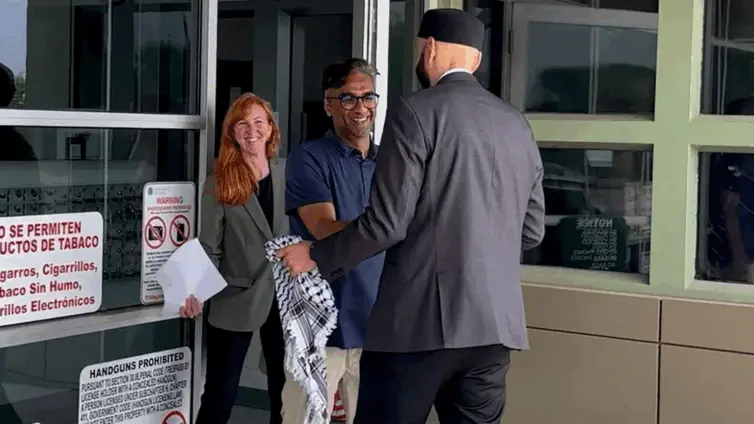In Burkina Faso, Captain Ibrahim Traoré’s leadership inspires both staunch support and sharp criticism. This dichotomy highlights a fundamental question resonating far beyond the nation’s borders: Is democracy truly delivering tangible benefits to its citizens? Development Economist FM Dzanku’s insights provide a crucial lens through which to examine this issue. As Burkina Faso undergoes significant socio-economic shifts, the core of the debate centers on whether democratic ideals align with the real-world improvements experienced by the populace.
Over the past two years, Burkina Faso has witnessed notable changes under Traoré’s administration, including reported GDP growth and significant policy adjustments. These developments set the stage for a critical exploration of the relationship between democratic principles and the pressing need for tangible development. This article will explore the intricate tension between these two imperatives, using Burkina Faso as a compelling case study to illuminate the challenges and potential pathways forward in the pursuit of democracy and development in Burkina Faso.
In the past two years, Burkina Faso has seen an 18% rise in GDP. The government has rejected loans from international bodies like the IMF and World Bank and also reduced salaries for ministers and parliamentarians by 30%. Salaries for civil servants have risen by 50%. These changes, including rejection of loans from bodies such as the IMF and the World Bank, mark a distinct shift in policy direction.
Burkina Faso has taken decisive steps to bolster its industrial and agricultural sectors. The clearance of domestic debt arrears has paved the way for new investments. The establishment of two tomato processing plants has generated agro-industrial employment, while the inauguration of a modern gold refinery aims to reduce the export of raw minerals, adding value within the country. Additionally, the launch of the country’s second cotton processing facility and the National Support Centre for Artisanal Cotton Processing supports local producers.
Beyond industry and agriculture, Burkina Faso is also investing in infrastructure, with ongoing road upgrades and the construction of a new airport designed to enhance connectivity and facilitate economic growth.
The legitimacy of democracy, in its purest form, hinges on its ability to deliver tangible improvements in the lives of ordinary people. It is not solely about holding elections, but about ensuring accountability and fostering an environment where citizens can thrive. Amartya Sen’s observation that “a country does not have to be deemed fit for democracy; rather, it has to become fit through democracy,” underscores the importance of context and the role of democracy in facilitating progress.
When democracy is reduced to periodic elections with little accountability, primarily benefiting a political elite, its foundations can be shaken. This is because citizens appear to desire practical leadership focused on addressing poverty and inequality. The events in Burkina Faso suggest a yearning for tangible results, rather than mere adherence to democratic processes. John Dewey’s assertion that “Democracy is more than a form of government; it is primarily a mode of associated living,” highlights the interconnectedness of governance and the lived experiences of the populace. When living conditions fail to improve, the very foundations of democracy can be eroded.
Governance must be judged not just by its institutional design, but by its capacity to uplift the lives of the majority. As the saying goes, “people do not eat democracy,” underscoring that governance must improve lives to be considered successful.
Democratic systems can be used as a cover for elite capture and mass impoverishment, undermining the very idea of democratic legitimacy. FM Dzanku observes that history teaches us that the gap between democratic ideals and material deprivation can lead to instability, eroding trust and fueling social unrest. The potential erosion of democratic foundations occurs when these ideals do not translate into tangible benefits for the populace. This can manifest through disillusionment, distrust in institutions, and a susceptibility to alternative forms of governance that promise immediate improvements, even at the expense of long-term democratic principles. This is a critical lesson from the recent experiences in Burkina Faso.
To move forward, democracies must focus on inclusive growth, accountable governance, and addressing structural inequalities. This entails creating economic opportunities that benefit all segments of society, ensuring transparency and accountability in government, and dismantling the systemic barriers that perpetuate poverty and inequality. Ultimately, the ability of democracies to deliver tangible results is essential for maintaining legitimacy and fostering long-term stability. It is a lesson that Burkina Faso underscores with great urgency.
Burkina Faso’s journey underscores the critical relationship between democracy and tangible development. While democratic ideals are vital, governance must deliver real improvements in people’s lives to maintain legitimacy. Governance should be judged by its ability to uplift the many, not just by its institutional framework. As FM Dzanku notes, the gap between democratic ideals and material realities can breed disillusionment and instability, making a focus on pragmatic, results-oriented leadership essential. The focus on democracy and development in Burkina Faso is paramount.
This blog post is based on the insights of FM Dzanku, a Development Economist at ISSER, University of Ghana.
Image Source: MYJOYONLINE






















